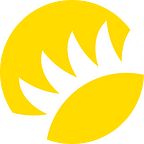Three IoT Highlights for Advanced Healthcare Services in the 2020s
With the advancement of technology, the healthcare industry is enjoying opportunities it has never been given before. These include but are not limited to telemedicine, receiving analysis results within minutes on a mobile app, or tracking blood sugar level and heart activity with the use of ultra-sensitive wearables. The universe of IoT in health services is quite vast. IoT can be described as items that read the information of their surroundings with the help of sensors and transmit this data to servers or electronic devices via the Internet. The prospects and advancements of the 5G wireless network and the growing demand from the medical community for digitalization and no-touch attendance open up outstanding opportunities for IoT implementation in healthcare.
In the age of individualized treatment, various monitoring devices that provide highly-accurate diagnostics become indispensable. Patients are not the only ones who benefit from implementing these trackers. IoT technology helps healthcare centers better administrate their facilities and, moreover, proves itself to be self-financing, which ultimately results in savings. Along with that, IoT nurtures such breathtaking inventions as robotic surgery or magic pills with sensors that are activated inside a human body and control medication intake. The disruptive IoT will not only lead us to the bright future of medicine — it has become a reality the world is already practicing today, and it promises a competitive edge to those who start implementing it. You can see this for yourself by reading the full version of the article with real cases of successful application of IoT technologies in healthcare.
